PhotoGallery
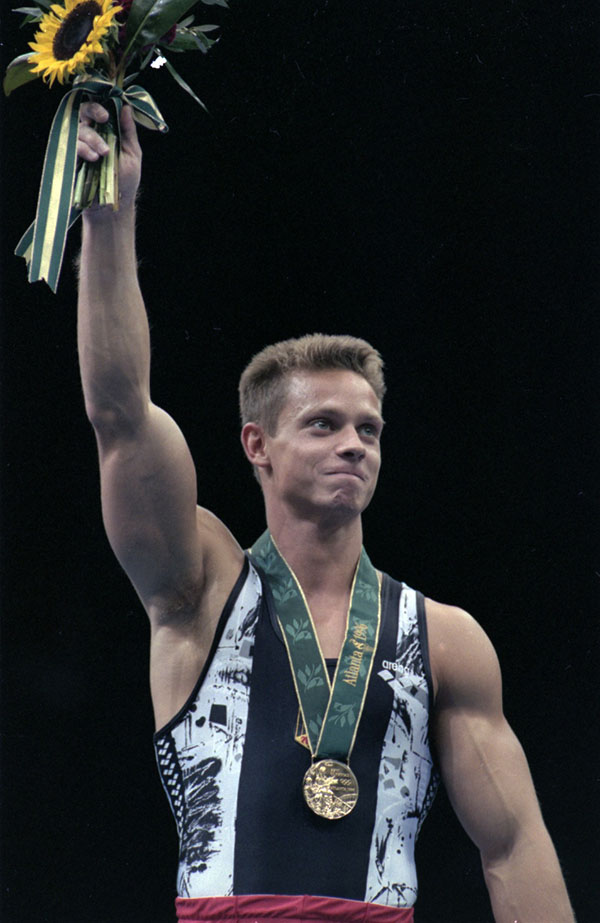
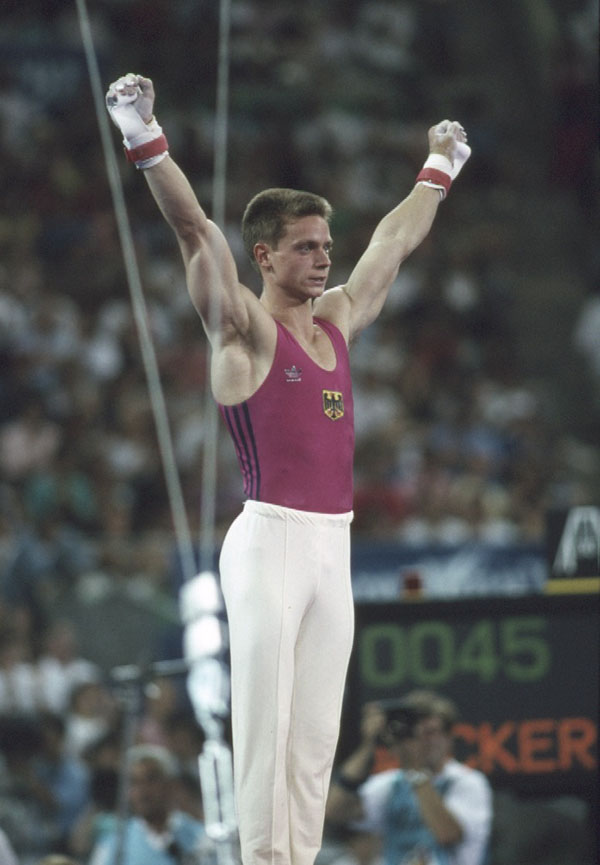
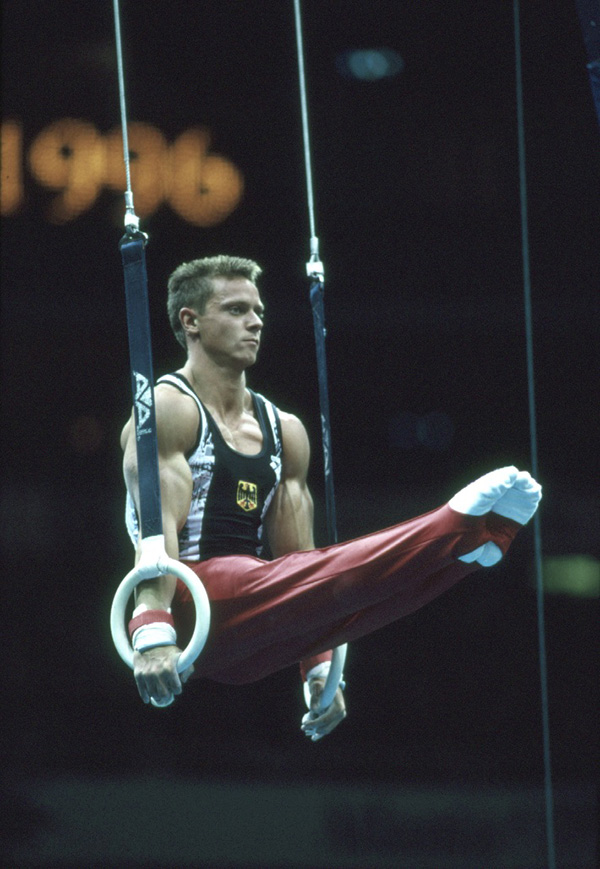
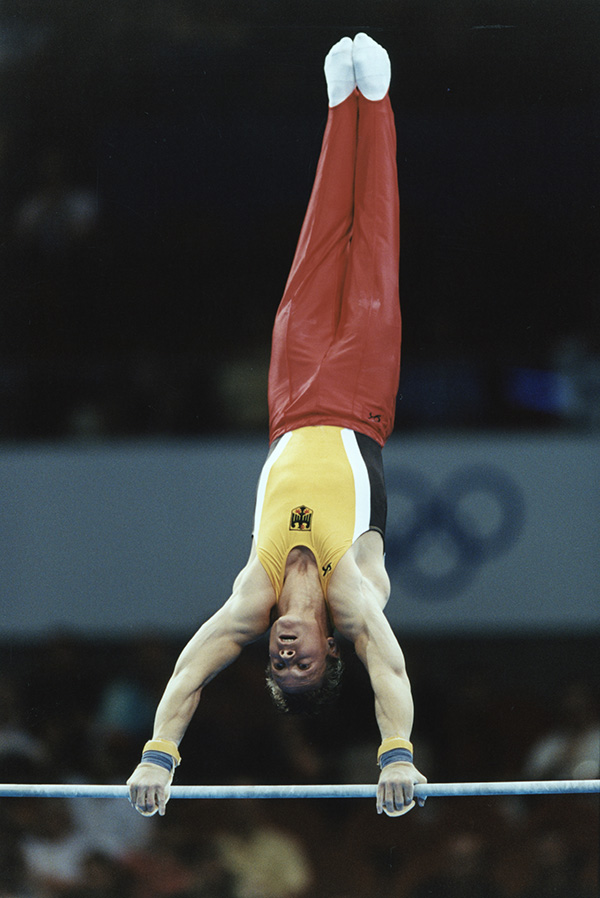
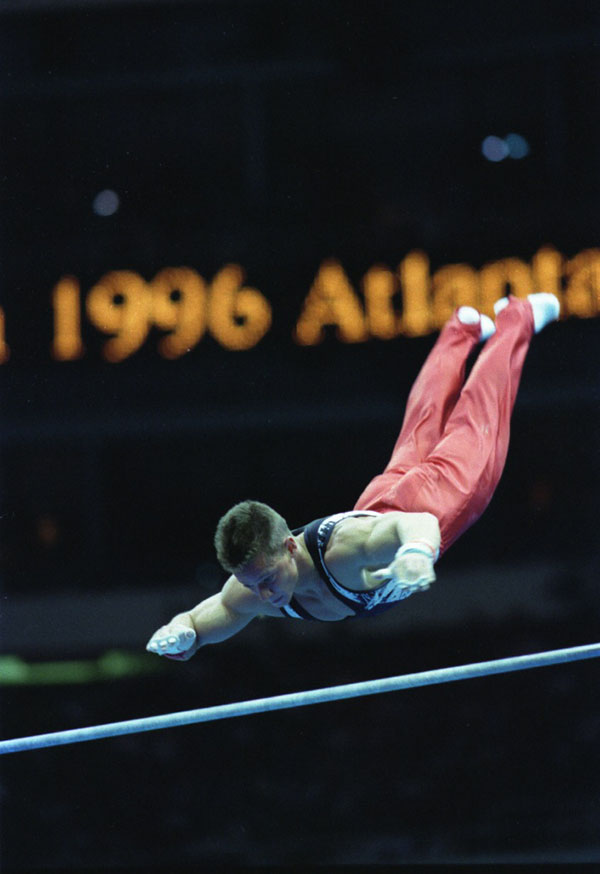

In a remarkable career that spanned 4 Olympic cycles from 1988 to 2000, perhaps Wecker's greatest individual achievement was his thrilling performance on the high bar at the 1996 Olympics in Atlanta where he won the gold medal over other iconic Hall of Fame gymnasts such as Vitaly Scherbo and Alexei Nemov.s
Andreas Wecker's legacy remains as one of the best male gymnasts in German history, and his achievements are globally recognized.
With dozens of European, World and Olympic medals to his credit, Andreas Wecker is widely regarded as one of the most accomplished male gymnasts in German history. In a remarkable career that spanned 4 Olympic cycles from 1988 to 2000, perhaps Wecker's greatest individual achievement was his thrilling performance on the high bar at the 1996 Olympics in Atlanta where he won the gold medal over other iconic Hall of Fame gymnasts such as Vitaly Scherbo and Alexei Nemov.
Andreas Wecker was born on January 2, 1970, in Strassfurt, East Germany. By the time he was just 6 years old, he was identified by a sports scout as one of the smallest, fastest and strongest children in his first-grade class, and he was invited to participate in gymnastics at a small local sports club. Three years later, at the age of 9, he was invited to move 100 miles away from his family to train at a special sports school called Sports Club Dynamo in Berlin, with the goal of eventually making the East German Olympic team.
At the 1988 Olympics, Wecker contributed to the silver medal winning team from East Germany at the games in Seoul, Korea. Just one year later, in 1989, Wecker achieved enormous success at the World Championships in Stuttgart where he won four medals. Wecker was celebrated at home with "what turned out to be" the last East German Sportsman of the Year award.
With a backdrop of global political changes, and the dramatic fall of the Berlin Wall, the reunification of Germany took place which represented the end of the cold war on Oct. 3, 1990. Regardless of the political climate, Wecker's raw talent and discipline continued to serve him well in the new unified Germany, and his success continued at the 1992 Olympics in Barcelona where he won silver on high bar, and two bronze medals on pommel horse and rings.
The next year, at the World Gymnastics Championships in Birmingham, England, Wecker won a gold medal on the floor exercise. Wecker took the gold medal on high bar at the 1995 Worlds in Sabae, Japan, which set the stage for his Olympic gold medal performance the following year in Atlanta. Four years later, Wecker qualified for his fourth and final Olympics in Sydney, but just days before his competition, he tore a biceps tendon which ultimately ended his illustrious career.
After his retirement from gymnastics, Wecker remained involved in the sport in a variety of roles. He became a coach and occasionally appeared in gymnastics-related media. In 2007, Wecker moved to the United States to begin a new life. Since then, Wecker has become a successful entrepreneur and businessman with the health supplement company he founded, Andreas Seed Oils.
Andreas Wecker's legacy remains as one of the best male gymnasts in German history, and his achievements are globally recognized as he joins the International Gymnastics Hall of Fame in the Class of 2025.




